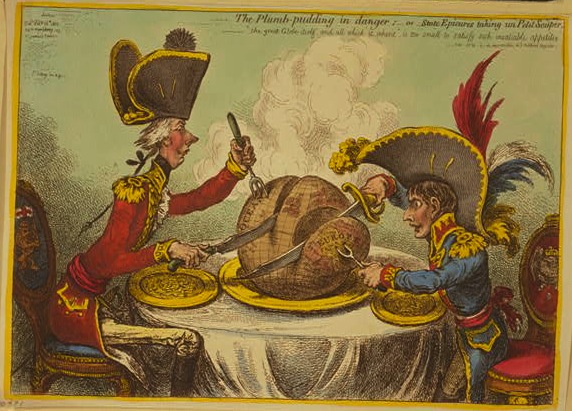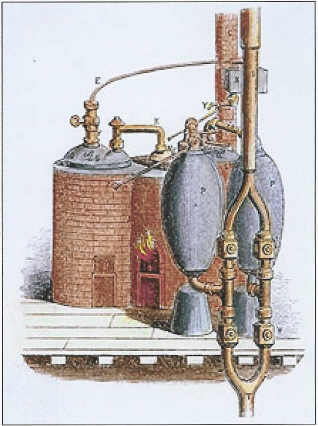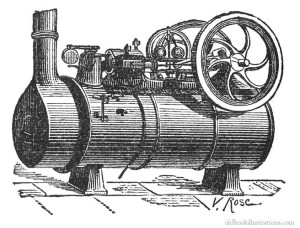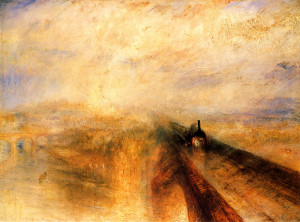Here’s my final sprint into the history of modern Britain.
Bibliography:
- E. J Hobsbawm, The Age of Empire, 1875-1914, 1st ed. (New York: Pantheon Books, 1987).
- Seth Koven, Slumming: Sexual and Social Politics in Victorian London (Princeton, NJ: Princeton University Press, 2004).
- Peter Mandler, ed., Liberty and Authority in Victorian Britain (Oxford: Oxford University Press, 2006).
- Bernard Porter, The Lion’s Share: A Short History of British Imperialism, 1850-2004, 4th ed. (Harlow, Essex, England: Pearson/Longman, 2004).
- Edward W Said, Orientalism, 1st ed. (New York: Vintage Books, 1979).
- F. M. L Thompson, The Rise of Respectable Society: A Social History of Victorian Britain, 1830-1900 (Cambridge, Mass: Harvard University Press, 1988).
- Judith R Walkowitz, City of Dreadful Delight: Narratives of Sexual Danger in Late-Victorian London, Women in culture and society (Chicago: University of Chicago Press, 1992).
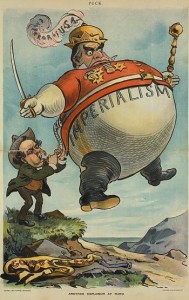
Imperialism in Britain prior to 1857 was to provide wealth to England. After Indian Mutiny in 1857, crown took over East India Company to help England, India, and Co survive. Afterward, they realized their dependence on their colonies and attitudes turned from one of master to one of public servant (there to enlighten India in economics, politics, and education). The realization of their dependence on colonies and their new focus on their relationship with colonies was termed “new Imperialism”. Porter and Hobsbawm both put economics as the moving force behind imperialism.
Another impetus for imperialism was the shift in local and national economics to the growing global market economy spawned by industrialist and capitalist needs for goods and resources. Imperialism became a necessity to remain competitive in the global market. If you didn’t have colonies to supply resources and goods, you didn’t have global power.
At a time of the rise in sciences of religion, New Imperialism was seen as social Darwinism as the more advanced, developed, and intelligent races naturally ruled over the lower species.
The Boer Wars in South Africa in 1850s and 1890s were significant shocks to Britain as they realized they were not the only players in the global bid for colonies, and, as they discovered in the second war, their nation was virtually unfit to compete in the skirmishes necessary to retain power.
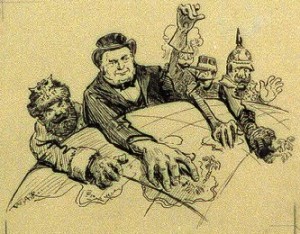
Imperialism creates what Edward Said terms orientalism, or dividing humanity based on culture, and comes about as one country comes to terms with differences encountered in other countries. The universal issues of “us” versus “them”. Such encounters, especially after their defeat in the 1890 Second Boer War, and the discovery of unfit men, left England seriously questioning the beliefs and culture that led them to that point.
Gender also came to prominent status as mass media and upper classes turned to look at the lower classes and themselves. According to the way some authors (Koven and Walkowitz) portray Victorian society, every aspect of life was actually about sex. Walkowitz looks at how changes in the city brought changes in society and gender spheres. Victorian society became more accepting of sexual discourse through various mass media (mostly newspapers) as more people became literate.
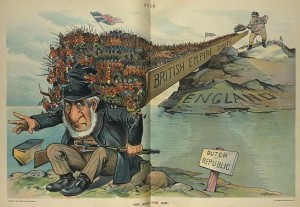
Such publicity lead to more exposure to woman’s rights and needs, as well as abuses (Jack the Ripper) and disreputable employments (prostitution). Some legal changes, including the Married Woman’s Property Act 1882, gave women more legal power to deal with injustices of the times. Koven looks at the philanthropic movement of “slumming,” the practice of upper class individuals visiting the poorest areas of cities in order to observe and often to help. Koven seems obsessed with the sexual aspects of everything, and seems to turn every instance into an opportunity to talk about it. Much too much focused on just one aspect to deliver a clear picture of Victorian period philanthropy. Anyhow, the Victorian period, especially fin de-siecle, was one of dramatic increase in the political address of woman’s rights.
